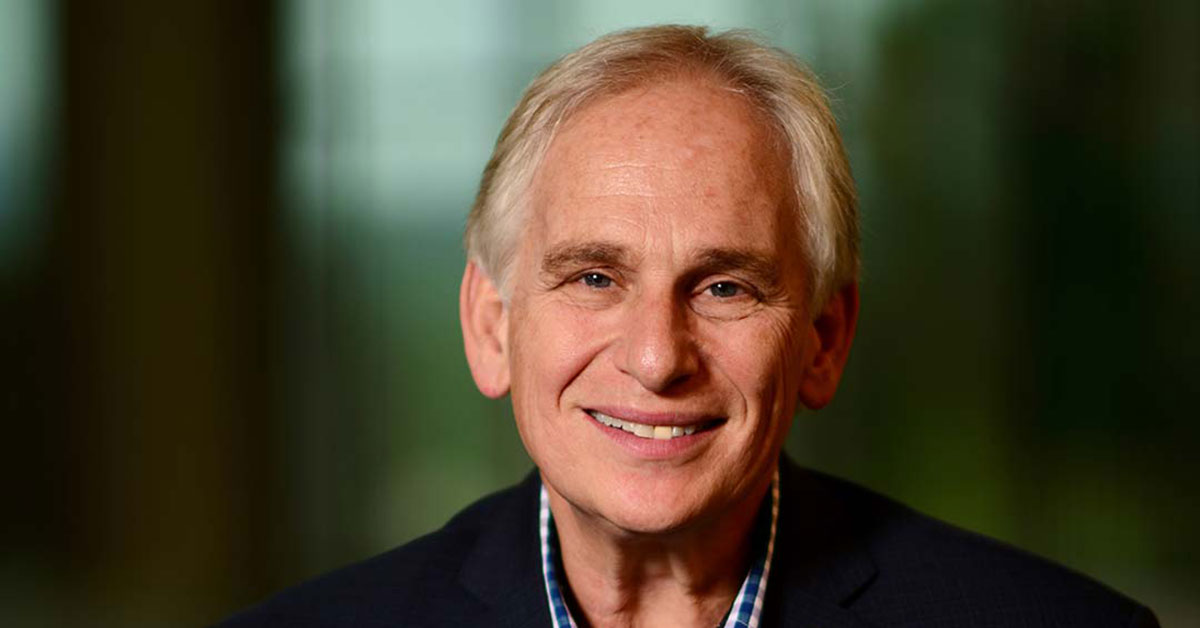“The stereotypical man has been the guy who says, ‘I can’t get sick. I’m fine. I’m invincible,’ and that’s a problem,” shared Dr. Larry Goldenberg, a urologic surgeon and clinical scientist. Dr. Goldenberg’s significant contribution to prostate cancer research and treatment has earned him international recognition and an appointment to the Order of Canada.
“Life expectancy in men has always trailed women by at least four years. How do you explain that? Well, men die more often of cardiac disease and diabetes. Out of the 35 cancers, men are more common in 32 out of the 35″, Dr. Goldenberg said.
Host Dan Murphy sat down with Canadian Men’s Health Foundation (CMHF) founder, Dr. Larry Goldenberg, to discuss why CMHF was established, the difference between life and health expectancy and the stages when health awareness becomes most important. Watch the episode now:
Not finding a sufficient explanation for why this was happening, he started to investigate and ask more questions, “What are the differences between men and women? What are we missing? Where’s the gap in healthcare here?”
The more Dr. Goldenberg researched, the more he realized how men’s health was a missing piece of the family health puzzle. “From a family health point of view, if you think about a puzzle, we have women’s health and children’s health, which are both very important. But a big missing piece of the puzzle was men’s health. Why aren’t we paying more attention to addressing preventative healthcare issues for men? Making men aware that they’re not invincible and that 70% of chronic illnesses when you get older can be prevented by earlier lifestyle changes, like more exercise, better diet, and so on.”
Starting a social movement for men’s health
The ‘Aha!’ moment for Dr. Goldenberg came during a routine procedure with a patient undergoing a vasectomy in 2009. He asked the patient if he knew his family history of prostate cancer or colon cancer. He had no idea.
“It dawned on me that this guy should talk to his father and grandfather if they are still alive. Family history is so important for many diseases,” said Dr. Goldenberg. “I thought we need to start a new social movement. We’ve had social movements for seat belts, for helmets, and for recycling. But we need a social movement to make men aware they’re not invincible. We need to educate men and motivate men.” So he started the Canadian Men’s Health Foundation to do just that.
As a national nonprofit organization, the Canadian Men’s Health Foundation provides men and their families with information, tools, and encouragement to live healthier lives. Because as Dr. Goldenberg said, “Men’s health goes well beyond the penis and the prostate. And you know, we’ve got hearts, we’ve got colons, and we’ve got mental health issues.”
Good health is more than just knowing your family history; it’s also health expectancy. As Dr. Goldenberg explained, “How long will you live in good health before you die? Ideally, we would like to be in perfect health until the day we die. Some people are, but generally, there’s a 10-year gap between when you die and when you get sick. Those nine or ten years are huge burdens on the individual, on the family, on the community, on our healthcare system, and on the economy of the country.”
Since its inception in 2014, CMHF has focused its advocacy work on chronic health prevention. Mental health awareness now compliments the foundation’s mission, born out of the growing need for information, resources and support that defined the COVID-19 global pandemic.
Nearly 20 National Champions act as brand ambassadors whose voices and experiences are recognizable and relatable to men. These former Olympians, NHLers, Grey Cup winners and broadcasters play an important role for CMHF, breaking down stigmas and normalizing conversations about men’s health.
The message: ‘Don’t Change Much’
Pivotal to CMHF’s success was finding a way to talk to men so they would listen. Dr. Goldenberg shared the challenge, “If you tell a 30-year-old man that he should stop smoking because when he’s 50 or 60, he’s going to have a risk of lung cancer or bladder cancer, he’ll look at me and say, I don’t care what’s going to happen 30 years from now. But if I tell him that if you keep smoking, you’re going to lose your erections in five years, let me tell you, I have his attention.”
The answer was Don’t Change Much. Dr. Goldenberg explained, “Don’t Change Much is a great way to reach men because some guys don’t want to change. You can’t go to a 30-year-old and say, ‘I want you to stop drinking, exercise more, sleep better and lose weight.’ You don’t have to change everything. Start by getting off the bus a block earlier, walk to work, take the stairs, and order half fries and half salad. If you drink three beers, cut down to two and then maybe one or none. If you smoke, cut it down gradually. Make small changes because we can all adapt to small changes. Eventually, these small changes become behavioural changes that are more permanent.”
Don’t Change Much became an effective, simple way to target unhealthy men because, according to Dr. Goldenberg, “the statistics from a study we did, found that 72% of Canadian men are not healthy or borderline unhealthy.”
The results have been more than encouraging. Of men who engage with the Don’t Change Much brand, 75% have improved their eating habits, 70% have started to exercise more regularly, 36% have lost weight, 45% have decreased their alcohol intake, and 35% have reduced their stress levels.
“I know there’s no magic bullet that’s going to make you live to a hundred, but many things can decrease your risks of chronic disease.” Dr. Goldenberg adds, “Check your testicles, know your blood pressure, learn your family history, get your cholesterol checked, lose weight, stop smoking, and eat a healthy diet. These are just so simple when you think about it.”
For more information and a complete list of resources available for men and their families, visit the Canadian Men’s Health Foundation website and tune into the Don’t Change Much Podcast.













Let’s Talk!
Did you enjoy this article? Let us know in the comments.
0 Comments